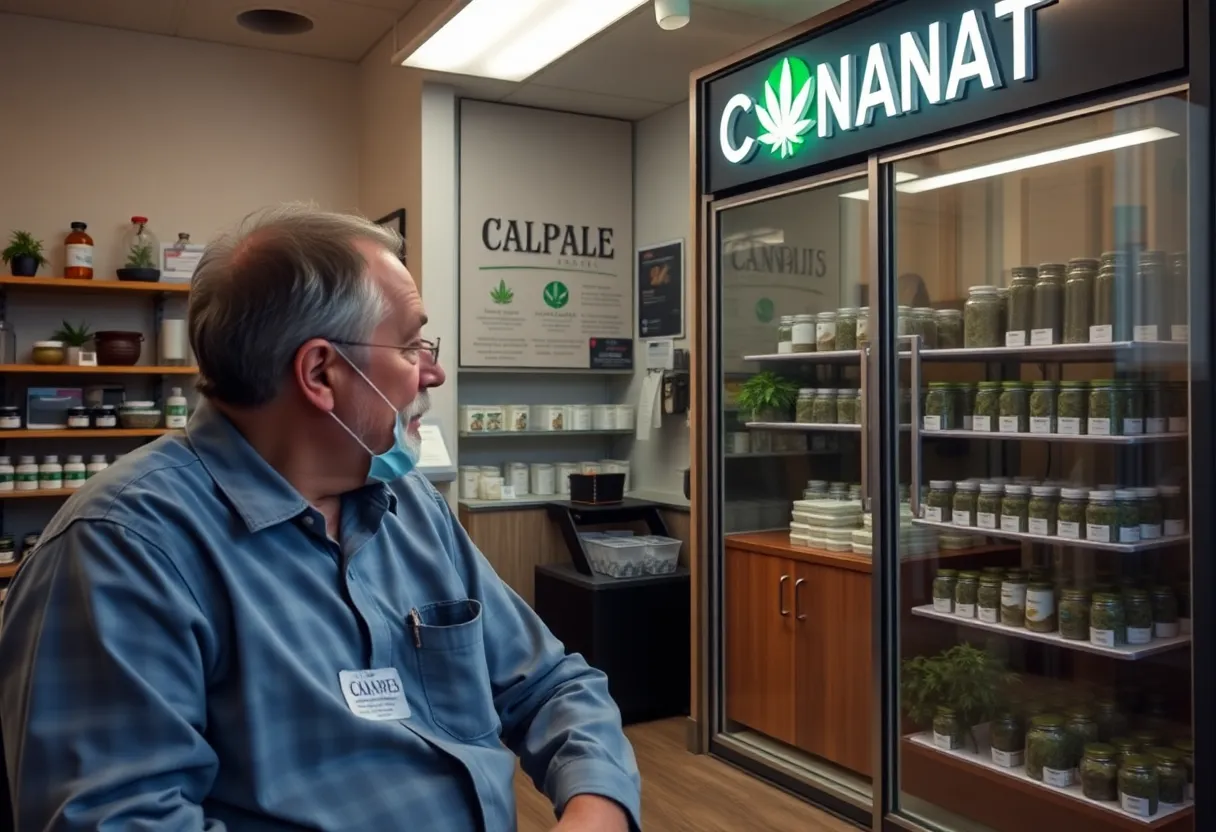California, October 16, 2025
News Summary
California Governor Gavin Newsom has vetoed Assembly Bill 1332, which aimed to facilitate direct shipping of medical cannabis from licensed microbusinesses to patients. Despite unanimous support in the legislature, Newsom cited concerns over the complexity and potential costs of implementing the direct-shipping program. The decision highlights ongoing access issues for medical cannabis patients in California, as sales are projected to decline significantly in the coming years.
California Governor Gavin Newsom vetoed Assembly Bill 1332 on October 11, 2023, effectively halting a proposed law intended to facilitate direct shipping of medical cannabis to patients. This bill aimed to expand patient access by allowing licensed microbusinesses to ship products directly to patients using common carriers, such as UPS or FedEx.
The veto comes despite A.B. 1332 receiving unanimous support, passing 39-0 in the California Senate and 78-0 in the House before reaching the governor’s desk. Sponsored by Assemblymember Patrick Ahrens (D-Silicon Valley), the legislation sought to address diminishing access to medical cannabis among patients in need.
Governor Newsom cited concerns that the direct-shipping program would be overly complex and burdensome to administer. He indicated that the necessary changes would require substantial revamping of the state’s cannabis track-and-trace system, involving significant costs and time. A fiscal analysis revealed that implementing the system would incur a one-time cost of approximately $269,000, along with ongoing annual expenses of about $472,000 for compliance oversight. While these annual costs represent less than 0.05% of the state’s taxable cannabis revenue from the previous year, the governor concluded that the program’s benefits did not outweigh its complexities.
As the medical cannabis market in California faces challenges, projections indicate that sales are set to decline below $200 million by 2025, a steep drop from around $540 million in 2021. Currently, medical cannabis accounts for roughly 4% of California’s licensed marketplace, down significantly from previous years. There are currently 290 active microbusiness licenses in California, with over 50 authorized for retail, manufacturing, distribution, and cultivation. Notably, the bill would have permitted only two businesses to ship medical cannabis directly to patients.
Newsom’s veto highlights ongoing struggles faced by medical cannabis patients, many of whom find it difficult to access specialized products that are often unavailable at local dispensaries. Advocates argue that excessive taxes and limited access have driven patients towards the unregulated market for their needs, further complicating the landscape of medical cannabis access in California.
California was the first state to legalize medical cannabis through Proposition 215 in 1996. Despite its pioneering role, over 57% of cities and counties within California still prohibit cannabis dispensaries. Additionally, medical cannabis patients must obtain a Medical Marijuana Identification Card (MMIC) from local health departments to be exempt from the state’s sales-and-use tax, which can reach up to $200. Proponents of A.B. 1332 argued that patients suffering from serious medical conditions, including intractable epilepsy and advanced cancers, face significant barriers in obtaining necessary products.
The legislation included a three-year sunset provision, allowing lawmakers to evaluate its effectiveness in improving patient access. Despite the veto, Governor Newsom expressed a willingness to collaborate with legislators in the future to explore other means of enhancing equitable access to medical cannabis for patients in need.
FAQ
What was the purpose of Assembly Bill 1332?
The bill aimed to expand patient access to medical cannabis by allowing licensed microbusinesses to ship products directly to patients using common carriers like UPS or FedEx.
Who sponsored Assembly Bill 1332?
The legislation was sponsored by Assemblymember Patrick Ahrens (D-Silicon Valley).
What were the voting results for A.B. 1332 in the California Senate and House?
A.B. 1332 passed unanimously in both the California Senate (39-0) and House (78-0) before reaching the governor’s desk.
Why did Governor Newsom veto Assembly Bill 1332?
Newsom expressed that the proposed direct-shipping program would be burdensome and overly complex to administer.
What are the projected medical cannabis sales in California for 2025?
Medical cannabis sales in California are projected to dip below $200 million in 2025, down from approximately $540 million in 2021.
What percentage of the licensed marketplace does medical cannabis currently represent?
Medical cannabis now represents roughly 4% of the licensed marketplace in California, a significant drop from previous years.
What costs were associated with implementing the direct shipping system?
A fiscal analysis indicated a one-time implementation cost of about $269,000 and ongoing annual costs of approximately $472,000 to oversee compliance with the direct shipping system.
What challenges do medical cannabis patients face in California?
Many medical cannabis patients struggle to find specialized products not stocked in local dispensaries, with high taxes and limited access forcing them into the unregulated market.
Deeper Dive: News & Info About This Topic
- Business of Cannabis
- Cannabis Business Times
- Ganjapreneur
- Encyclopedia Britannica: Medical Marijuana Debate
- US News

Author: STAFF HERE COSTA MESA WRITER
The COSTA MESA STAFF WRITER represents the experienced team at HERECostaMesa.com, your go-to source for actionable local news and information in Costa Mesa, Orange County, and beyond. Specializing in "news you can use," we cover essential topics like product reviews for personal and business needs, local business directories, politics, real estate trends, neighborhood insights, and state news affecting the area—with deep expertise drawn from years of dedicated reporting and strong community input, including local press releases and business updates. We deliver top reporting on high-value events such as the OC Fair, Concerts in the Park, and Fish Fry. Our coverage extends to key organizations like the Costa Mesa Chamber of Commerce and Boys & Girls Clubs of Central Orange Coast, plus leading businesses in retail, fashion, and technology that power the local economy such as Vans, Experian, and South Coast Plaza. As part of the broader HERE network, including HEREAnaheim.com, HEREBeverlyHills.com, HERECoronado.com, HEREHollywood.com, HEREHuntingtonBeach.com, HERELongBeach.com, HERELosAngeles.com, HEREMissionViejo.com, HERESanDiego.com, and HERESantaAna.com, we provide comprehensive, credible insights into California's dynamic landscape.


